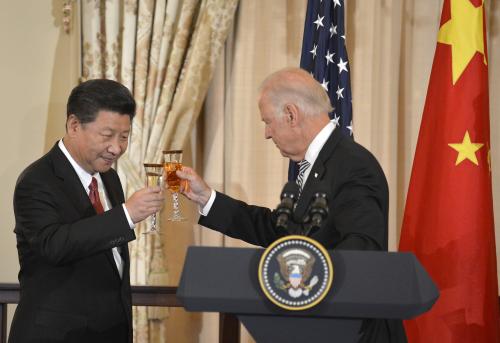TechTank, a biweekly podcast from the Center for Technology Innovation at Brookings, explores today’s most consequential technology issues. Moderators Nicol Turner Lee and Darrell West speak with experts and policymakers to share data, ideas, and policy solutions that address the challenges of our digital world.
Social media has become a hot topic over recent months, as the failure of companies to handle algorithmic discrimination, the spread of misinformation and the exploitation of children have translated to adverse societal harms. However, when considering how to regulate and resolve existing problems, it is interesting to examine how teens, the most tech-savvy population of all, have been navigating the internet. Which social media platforms do Gen-Zers prefer, and how do they navigate platform algorithms? How have online influencers played a part fighting back against vaccine misinformation and other societal injustices? What is the influencer industry, and in what ways are young influencers vulnerable to burnout and exploitation by social media companies and talent agencies? To answer these questions, Samantha Lai will be joined by Taylor Lorenz, technology reporter for the New York Times and affiliate at the Harvard’s Berkman Klein Center for Internet & Society, to discuss how young people use the internet and why it matters. You can listen to the episode and subscribe to the TechTank podcast on Apple, Spotify, or Acast.
TechTank is a biweekly podcast from The Brookings Institution exploring the most consequential technology issues of our time. From artificial intelligence and racial bias in algorithms, to Big Tech, the future of work, and the digital divide, TechTank takes abstract ideas and makes them accessible. Moderators Dr. Nicol Turner Lee and Darrell West speak with leading technology experts and policymakers to share new data, ideas, and policy solutions to address the challenges of our new digital world.
The Brookings Institution is committed to quality, independence, and impact.
We are supported by a diverse array of funders. In line with our values and policies, each Brookings publication represents the sole views of its author(s).











Commentary
PodcastLorenz on Gen Z, Influencer Culture, and the Future of Social Media | The TechTank Podcast
December 13, 2021
Listen on
The TechTank Podcast